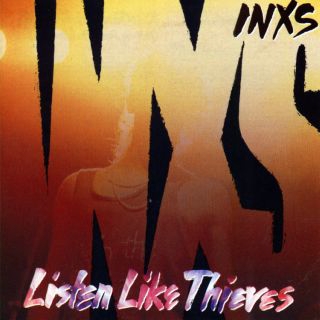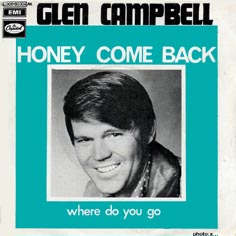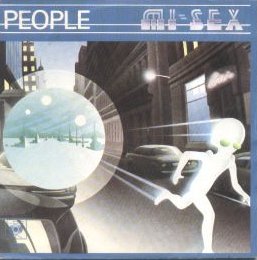Sharon Lea O'Neill is a New Zealand singer-songwriter and pianist, who had an Australasian hit single in 1983 with "Maxine" which reached No. 16 on both the Australian Kent Music Report and Recording Industry Association of New Zealand charts.

Listen Like Thieves is the fifth studio album by Australian rock band INXS. It was released on 14 October 1985. It spent two weeks at number one on the Australian Kent Music Report Albums Chart. Considered an international breakthrough album for the band, it peaked at No. 11 on the United States Billboard 200, No. 24 on the Canadian RPM 100 Albums and in the top 50 in the United Kingdom.

"Computer Games" is a song by New Zealand band Mi-Sex, released in September 1979 in Australia and New Zealand as the second single from their debut studio album, Graffiti Crimes (1979). The song peaked at number 1 in Australia and 5 in New Zealand. The music video was filmed on location at what was at the time Control Data Corporation's North Sydney centre and included gameplay from the 1979 arcade games Speed Freak, Basketball and Star Fire. The single won the award for Best Australian Single at the 1979 TV Week/Countdown Music Awards.
Stephen Ellis Gilpin was a New Zealand singer and a founder of new wave band Mi-Sex.

Mi-Sex is a New Zealand new wave band originally active from 1978 to 1986, and led for much of its existence by Steve Gilpin as vocalist, Kevin Stanton as guitarist and songwriter, Murray Burns as keyboardist and songwriter, and Don Martin as bassist. The group's manager for much of its career was Bob Yates. Mi-Sex achieved two top 10 hit singles in 1979-80: "Computer Games" in October 1979 and "People" in 1980. Their first two albums both reached the New Zealand top 10, Graffiti Crimes and Space Race. They were known for their cutting edge production and dynamic live shows. Gilpin died in January 1992, two months after a serious car accident from which he never recovered. Mi-Sex have periodically reformed, including in 2011 with Steve Balbi (ex-Noiseworks) on lead vocals. Stanton died on 17 May 2017, Martin on 10 August 2020.

"Montego Bay" is a song co-written and performed by Bobby Bloom about the city in Jamaica of the same name. The song was a top ten hit for Bloom in the Fall of 1970 on both sides of the Atlantic. It reached No. 3 on the UK Singles Chart, No. 5 on the Canadian RPM 100 Singles Chart, No. 7 on the Australian Go-Set Singles Chart and No. 8 on the US Billboard Hot 100. The song was co-written and produced by Jeff Barry. In the master tape of the song, Bloom breaks into a chorus of "Oh, What a Beautiful Mornin'" at the end of the recording. The song features a whistler, as well as Jamaican instruments in a calypso style.

Barbra Streisand's Greatest Hits Volume 2 is the second greatest hits album recorded by American vocalist Barbra Streisand. It was released on November 15, 1978 by Columbia Records. The album is a compilation consisting of ten commercially successful singles from the singer's releases in the 1970s, with a majority of them being cover songs. It also features a new version of "You Don't Bring Me Flowers", which was released as the collection's only single on October 7, 1978. Originating on Streisand's previous album, Songbird, the new rendition is a duet with Neil Diamond who had also recorded the song for his 1978 album of the same name. The idea for the duet originated from DJ Gary Guthrie who sold the idea to the record label for $5 million.

Space Race is the second studio album by New Zealand New Wave music group Mi-Sex, released in May 1980.The album peaked at number one on the New Zealand albums chart and was certified platinum.

Graffiti Crimes was the debut studio album by New Zealand new wave music group Mi-Sex, released in July 1979. The album peaked at number six on the New Zealand albums chart and number 16 on the Australian Kent Music Report. the album was certified Gold in New Zealand.

Shanghaied! is the third studio album by New Zealand new wave band Mi-Sex, released in October 1981. The album peaked at number 28 on the Australian Kent Music Report.

"Honey Come Back" is a song written by Jimmy Webb, and recorded by the American country music artist Glen Campbell. It would become a major hit for him.

Where Do They Go? is the fourth studio album by New Zealand new wave band Mi-Sex, released in November 1983. The album peaked at number 80 on the Australian Kent Music Report. It would be the band's last studio album until Not from Here in 2016.
"Words" is a song by the New Zealand singer and songwriter Sharon O'Neill. The song was released in New Zealand in September 1979 as the lead single from her second studio album, Sharon O'Neill (1980). The song was released in Australia in April 1980 as her first single in that country.
"Asian Paradise" is a song by New Zealand singer and songwriter Sharon O'Neill. The song was released in April 1980 as the third single from her second studio album, Sharon O'Neill (1980)

"People" is a song by New Zealand group Mi-Sex, released in March 1980 as the lead single from their second studio album, Space Race (1980). The song peaked at number 3 in New Zealand and 6 in Australia.

"Falling In and Out" is a song by New Zealand group Mi-Sex, released in April 1981 as the lead single from their third studio album, Shanghaied! (1981). The song peaked at number 48 in New Zealand and 20 in Australia.
"But You Don't Care" is a song by New Zealand group Mi-Sex, released in June 1979 as the lead single from their debut studio album, Graffiti Crimes (1979). The song was the band's first on CBS records and became the band's first charting single, peaking at number 33 in New Zealand and 25 in Australia.

"Blue Day" is a song by New Zealand group Mi-Sex, released in February 1984 as the second single from their fourth studio album, Where Do They Go? (1983). The song peaked at number 24 in Australia.

"Castaway" is a song by New Zealand group Mi-Sex, released in May 1982. The song peaked at number 23 in Australia.

"Only Thinking" is a song by New Zealand group Mi-Sex, released in October 1983 as the lead single from their fourth studio album, Where Do They Go? (1983). The song peaked at number 48 in Australia.















